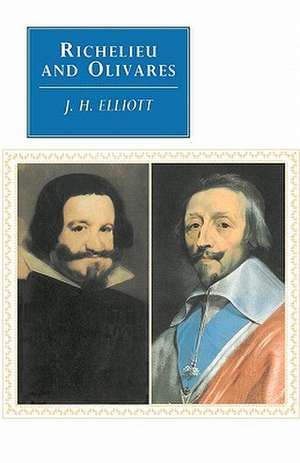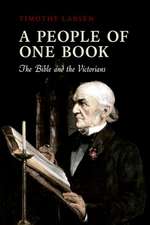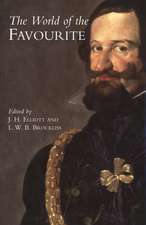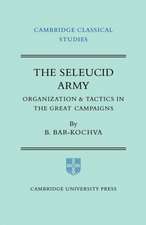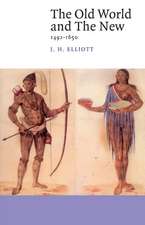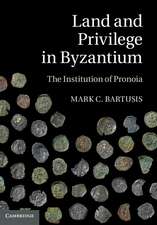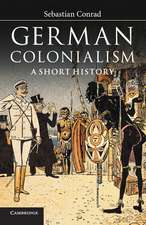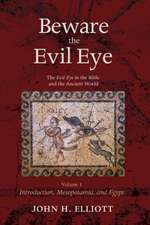Richelieu and Olivares: Canto original series
Autor J. H. Elliotten Limba Engleză Paperback – 25 iul 1991
Din seria Canto original series
-
 Preț: 161.23 lei
Preț: 161.23 lei -
 Preț: 192.28 lei
Preț: 192.28 lei -
 Preț: 161.23 lei
Preț: 161.23 lei -
 Preț: 156.89 lei
Preț: 156.89 lei -
 Preț: 162.90 lei
Preț: 162.90 lei -
 Preț: 206.71 lei
Preț: 206.71 lei -
 Preț: 101.42 lei
Preț: 101.42 lei -
 Preț: 188.94 lei
Preț: 188.94 lei -
 Preț: 167.31 lei
Preț: 167.31 lei -
 Preț: 270.84 lei
Preț: 270.84 lei -
 Preț: 196.58 lei
Preț: 196.58 lei -
 Preț: 199.64 lei
Preț: 199.64 lei -
 Preț: 234.11 lei
Preț: 234.11 lei -
 Preț: 259.85 lei
Preț: 259.85 lei -
 Preț: 195.39 lei
Preț: 195.39 lei -
 Preț: 133.27 lei
Preț: 133.27 lei -
 Preț: 264.31 lei
Preț: 264.31 lei -
 Preț: 199.85 lei
Preț: 199.85 lei -
 Preț: 176.39 lei
Preț: 176.39 lei -
 Preț: 174.55 lei
Preț: 174.55 lei -
 Preț: 200.22 lei
Preț: 200.22 lei -
 Preț: 171.16 lei
Preț: 171.16 lei -
 Preț: 196.37 lei
Preț: 196.37 lei -
 Preț: 220.20 lei
Preț: 220.20 lei -
 Preț: 201.37 lei
Preț: 201.37 lei -
 Preț: 258.79 lei
Preț: 258.79 lei -
 Preț: 138.06 lei
Preț: 138.06 lei -
 Preț: 300.92 lei
Preț: 300.92 lei -
 Preț: 164.25 lei
Preț: 164.25 lei -
 Preț: 205.62 lei
Preț: 205.62 lei -
 Preț: 147.93 lei
Preț: 147.93 lei
Preț: 154.62 lei
Nou
Puncte Express: 232
Preț estimativ în valută:
29.60€ • 32.16$ • 24.88£
29.60€ • 32.16$ • 24.88£
Carte disponibilă
Livrare economică 31 martie-14 aprilie
Livrare express 14-20 martie pentru 43.69 lei
Preluare comenzi: 021 569.72.76
Specificații
ISBN-13: 9780521406741
ISBN-10: 0521406749
Pagini: 200
Dimensiuni: 136 x 217 x 17 mm
Greutate: 0.27 kg
Ediția:Revised
Editura: Cambridge University Press
Colecția Cambridge University Press
Seria Canto original series
Locul publicării:Cambridge, United Kingdom
ISBN-10: 0521406749
Pagini: 200
Dimensiuni: 136 x 217 x 17 mm
Greutate: 0.27 kg
Ediția:Revised
Editura: Cambridge University Press
Colecția Cambridge University Press
Seria Canto original series
Locul publicării:Cambridge, United Kingdom
Cuprins
List of illustrations; Acknowledgements; List of abbreviations; Introduction; 1. Statesmen and rivals; 2. Masters and servants; 3. Restoration and reform; 4. Mantua and its consequences; 5. War and raison d'etat; 6. Failure and success; Bibliography; Index.
Recenzii
'J. H. Elliott's elegant and penetrating study … is brief, readable, yet wide-ranging … Rather than offering a new orthodoxy, this pleasingly modest book has the great merit of raising questions it often does not pretend to solve, leaving the reader with plenty to think about.' The Times Literary Supplement
